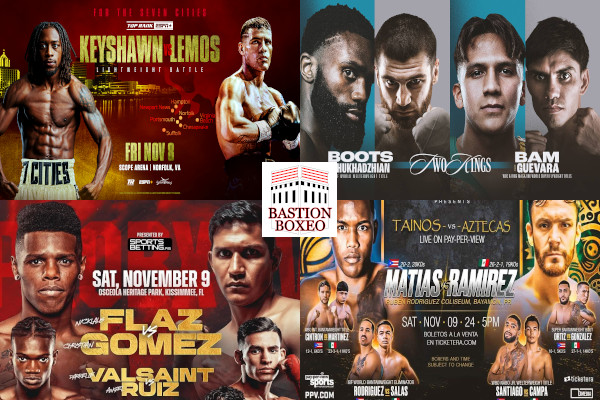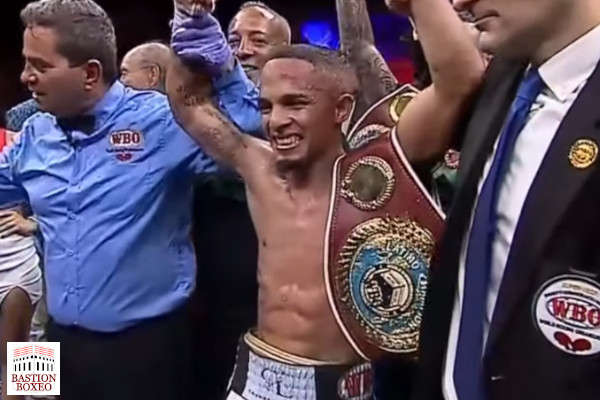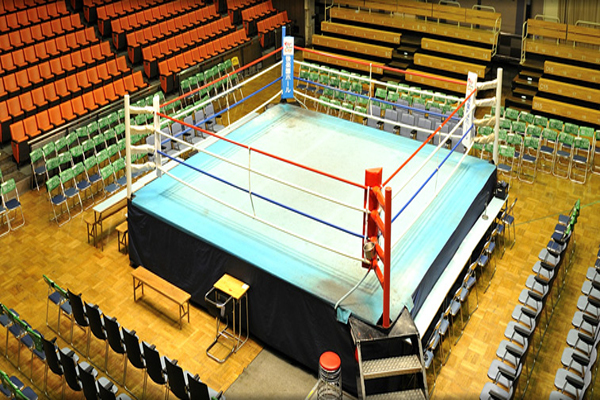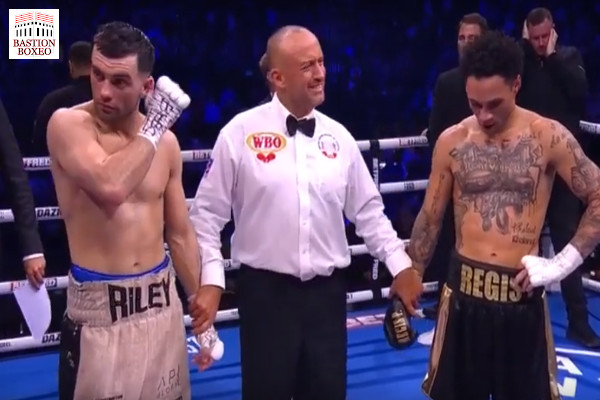Edgar Berlanga logró decepcionante victoria por decisión ante Steve Rolls
Daniel Pi
@BastionBoxeo
Madison Square Garden Theater, Nueva York, Estados Unidos. Peso supermedio.
El enfrentamiento entre el estadounidense Edgar Berlanga 19(16KO)-0 y el canadiense Steve Rolls 21(12KO)-2(1) era una perfecta oportunidad dada por Top Rank al primero de ambos para que mostrase sus supuestas mejoras tras su controvertida victoria ante Marcelo Cóceres. Sin embargo, Berlanga lejos de evidenciar ajustes en su boxeo o de explotar la ocasión para dar un golpe en la mesa ante su público tuvo una decepcionante actuación más, en la que puso de manifiesto sus enormes brechas pugilísticas y obtuvo de forma cuestionable un triunfo unánime. Las puntuaciones fueron de 96-94 y excesivo doble 97-93.
Teniendo en cuenta lo inefectivo que había sido Berlanga ante el móvil Cóceres, Rolls decidió optar por un planteamiento dinámico y, aunque no posee gran agilidad, logró evitar la gran mayoría de los golpes de poder del estadounidense, que tiene un mal control de los espacios, y un corte de ring aún peor, y que no encontraba la manera de situarse en posición de golpeo de forma consistente. De todos modos, más preocupante aún que sus defectos, Berlanga pareció haber perdido la confianza y la decisión que tenía cuando creó su racha de knockouts en el primer asalto, puesto que Rolls no se desplazaba más rápido que muchos de los boxeadores a los que el invicto atropelló en busca de extender su cadena de rápidos triunfos.
En cualquier caso, Berlanga a penas alcanzaba con manos claras al lento Rolls, si bien el canadiense tuvo una cadencia de golpeo tan baja en el primer tercio que era difícil darle rounds ante un boxeador que ponía más continuidad y agresividad y que, aunque inefectivo, iba trabajando. En cambio, cuando hacia a la mitad Rolls decidió sacar más su uno-dos llegó con manos nítidas que hicieron incuestionable que era superior en esos episodios. Así el visitante fue remontando hasta que se llegaron a unos últimos rounds en los que Berlanga intensificó su acometividad, si bien no mucho su acierto, y según los jueces (en desacuerdo con muchos observadores) hizo suficiente para vencer.
La cara de Berlanga en la entrevista posterior al combate lo decía todo, siendo evidente que el propio púgil, pese a las excusas que daba (dijo que su rival se centró en huir), estaba claramente decepcionado con su propia actuación.
Evidentemente, no hay que perder de vista que ahora Berlanga tiene 44 rounds profesionales combatidos, cifra escasa si no se cuenta con una gran carrera amateur, y que a sus 24 años tiene tiempo para intentar modificar su boxeo de modo que pueda explotar debidamente su potencia. Sin embargo, hoy por hoy la paciencia de Top Rank se va agotando y sus potenciales rivales cada vez tienen más claro qué deben hacer para poner en problemas a un dubitativo, cohibido y tácticamente simplísimo Berlanga, por lo que si el boxeador, por encima de todo, no recupera la determinación en sus ataques y no logra un triunfo contundente podría terminar entrando en una espiral muy negativa para sus intereses.
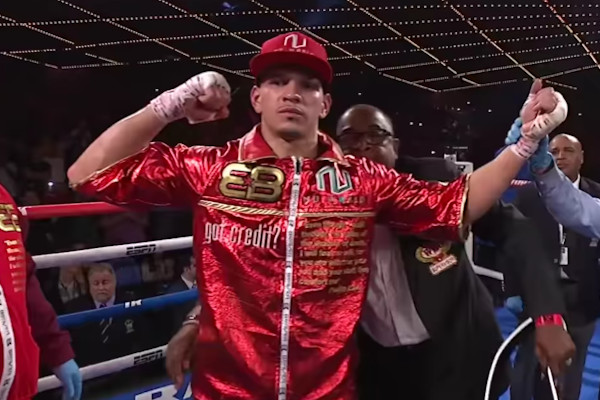
Edgar Berlanga achieved disappointing decision win over Steve Rolls
Daniel Pi
@BastionBoxeo
Madison Square Garden Theater, New York, United States. Super middleweight.
The confrontation between the American Edgar Berlanga 19(16KO)-0 and the Canadian Steve Rolls 21(12KO)-2(1) was a perfect opportunity given by Top Rank to the former to show off his supposed improvements after his controversial victory against Marcelo Cóceres. However, Berlanga, far from adjusting his boxing or exploiting the opportunity to make a statement in front of his home crowd, had one more disappointing performance, in which he showed his pugilistic breaches and questionably obtained a unanimous decision victory. The scorecards were 96-94 and an excessive double 97-93.
Taking into account how ineffective Berlanga had been against the mobile Cóceres, Rolls decided to chose a dynamic approach and, although he does not have great agility, he managed to avoid the vast majority of the power shots of the American, who has poor management of the distance, and an even worse ring cut, and that couldn’t find a way to get consistently into hitting position. Still, more troubling than his flaws, Berlanga seemed to have lost the confidence and resolve he had when he created his first-round knockout streak, as Rolls didn’t move faster than many of the fighters the undefeated overwhelmed looking to extend his string of quick wins.
In any case, Berlanga barely hit the slow Rolls with clear hands, although the Canadian had such a low punch rate in the first third that it was difficult to give him rounds against a boxer who put more continuity and aggressiveness and who, although ineffective, was working more. However, when in the mid-point Rolls used more his one-two he connected sharp punches that made it unquestionable that he was superior in those rounds. Thus, the visitor was coming back until the last rounds were reached, when Berlanga intensified his aggressiveness and according to the judges (in disagreement with many observers) did enough to win.
Berlanga’s face in the post-fight interview said it all, as it was clear that the fighter himself, despite the excuses he gave (he said his rival was focused just on running), was clearly disappointed with his own performance.
Obviously, Berlanga has now only 44 professional rounds of experiene, which are not many for a boxer without a great amateur career, and he is 24 years of age and has time to try to modify his boxing so that he can fully exploit his power. However, today Top Rank’s patience is running out and his potential rivals know increasingly better what they should do to put a hesitant Berlanga in trouble. So if the boxer, above all, does not recover the determination in his attacks and does not achieve a resounding victory soon, he could end up entering a very negative spiral.





